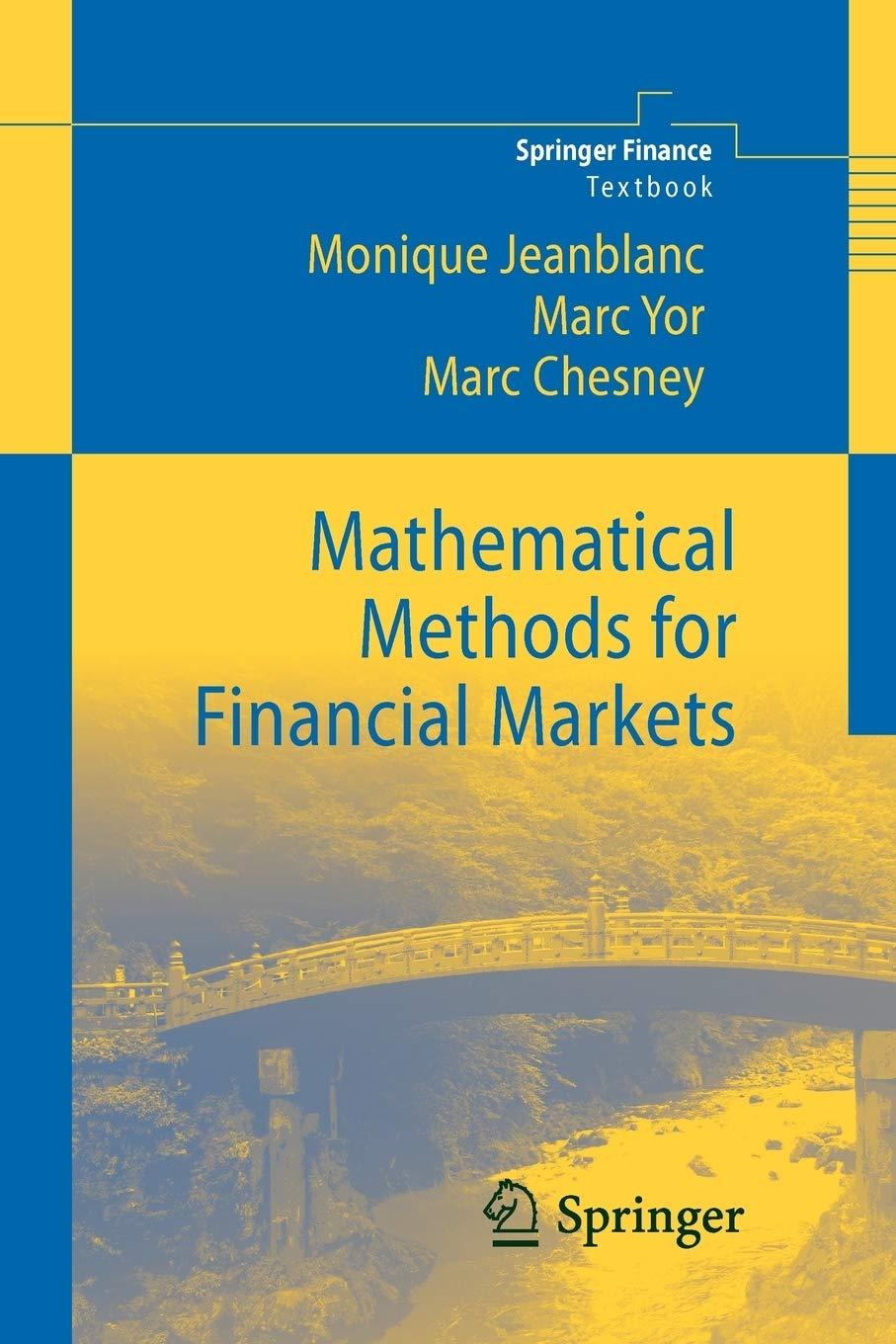(1) Let (d S_{t}=S_{t} sigma d W_{t}, S_{0}=x). Prove that for any bounded function (f), [mathbb{E}left(fleft(S_{T} ight)...
Question:
(1) Let \(d S_{t}=S_{t} \sigma d W_{t}, S_{0}=x\). Prove that for any bounded function \(f\),
\[\mathbb{E}\left(f\left(S_{T}\right)\right)=\mathbb{E}\left(\frac{S_{T}}{x} f\left(\frac{x^{2}}{S_{T}}\right)\right)\]
(2) Prove that, if \(d S_{t}=S_{t}\left(\mu d t+\sigma d W_{t}\right)\), there exists \(\gamma\) such that \(S^{\gamma}\) is a martingale. Prove that for any bounded function \(f\),
\[\mathbb{E}\left(f\left(S_{T}\right)\right)=\mathbb{E}\left(\left(\frac{S_{T}}{x}\right)^{\gamma} f\left(\frac{x^{2}}{S_{T}}\right)\right)\]
Prove that, for bounded function \(f\),
\[\left.\mathbb{E}\left(S_{T}^{\alpha} f\left(S_{T}\right)\right)=x^{\alpha} e^{\mu(\alpha) T} \mathbb{E}\left(f\left(e^{\alpha \sigma^{2} T} S_{T}\right)\right)\right),\]
where \(\mu(\alpha)=\alpha\left(\mu+\frac{1}{2} \sigma^{2}(\alpha-1)\right)\).
Step by Step Answer:

Mathematical Methods For Financial Markets
ISBN: 9781447125242
1st Edition
Authors: Monique Jeanblanc, Marc Yor, Marc Chesney





